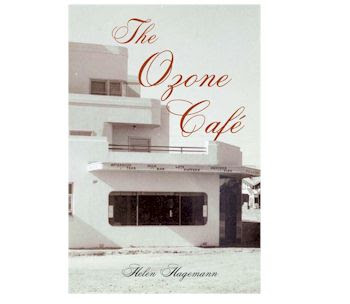 This is How you Lose Her
This is How you Lose Her Review by Helen Hagemann
I must preface this review with the origins of discovering Junot Diaz. His works were highly regarded and recommended by visiting writer, editor (Granta) and literary critic, John Freeman. It was February 2013 at the Perth Writers Festival where Freeman offered a slew of good authors to read. Many I hadn't heard of before. So, in this global, ever-shrinking world that expands literary knowledge, here it is, all but brief.
In Junot Díaz's collection This is How You Lose Her each story follows Yunior, a Dominican immigrant, through relationships from his teens to mid-life. Each story is interconnected, so that there’s a broader picture of Yunior’s male prowess and his attitudes toward and failures with women. There are so many stories that are raw and ungracious, most are peppered with Spanglish (a reference index would have helped!) sexist language too, yet one can’t help thinking that the author’s main intent was to stay true to that bozo-type character. Women would have met this type of male before at any time, in any culture; pumped up and invincible. But as Diaz has stated: ‘there are two types of writers, those who write for other writers, and those who write for readers.” He prefers to keep his readers in mind when writing a story. They’re more likely to gloss over any mistakes and act as willing participants in a story, rather than actively looking to criticize his writing. So, it’s that Roland Barthes’ theory of “the author is dead”; we have to disconnect him from the character. A biographer once told me that one does not necessarily have to like a character, as long as they’re interesting. It's also interesting that Junot Díaz has opened up that fresh sea air to a window of another culture, with some of us learning a little Spanish along the way.
Born in1968, Junot Díaz is a Dominican-American writer, creative writing professor at Massachusetts Institute of Technology (MIT), and fiction editor at Boston Review. He also serves on the board of advisers for Freedom University, a volunteer organization in Georgia that provides post-secondary instruction to un-documented immigrants. Central to Díaz's work is the immigrant experience. He received the Pulitzer Prize for Fiction for his novel The Brief Wondrous Life of Oscar Wao, in 2008. He is a 2012 MacArthur Fellow.
His
short fiction has appeared in The New Yorker magazine, which listed him as one
of the 20 top writers for the 21st century. He has also been published in Story, The Paris Review, and in the anthologies The Best American Short Stories four times (1996, 1997, 1999,
2000), The PEN/O. Henry Prize Stories (2009), and African Voices. He is best
known for his two major works: the short story collection Drown (1996) and the
novel The Brief Wondrous Life of Oscar
Wao (2007). Both were published to critical acclaim. Diaz himself has
described his writing style as "[...] a disobedient child of New Jersey
and the Dominican Republic if that can be possibly imagined with way too much
education."
On
writing and the arts, Diaz has stated, "Art is what matters most, and if
you’re not contextualizing for a larger push for the arts, what does it matter?
What’s really relevant, important, and exigent is that all of us are under
pressure to spend less time with art, and we’ve got to figure out a way to talk
and encourage each other to do the opposite."
















0 comments:
Post a Comment